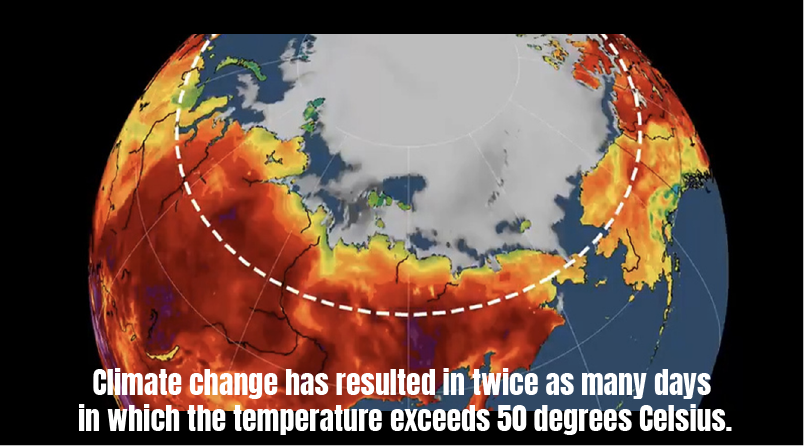Since the 1980s, the number of extremely hot days each year when the temperature exceeds 50°C has increased. They now occur in more parts of the world than ever before, posing tremendous threats to human health and our way of life. Between 1980 and 2009, temperatures averaged 14 times above 50 degrees Celsius each year.
Between 2010 and 2019, the number increased to 26 days per year.
Temperatures of 45°C or above occurred an extra two weeks each year on average throughout the same period. “The increase is entirely due to the combustion of fossil fuels,” says Dr Friederike Otto, associate director of the University of Oxford’s Environmental Change Institute. As the globe warms, extreme temperatures are becoming more likely. High temperatures can be deadly to humans and animals, as well as wreaking havoc on structures, roads, and power grids.
In the Middle East and Gulf, temperatures of 50 degrees Celsius are common.
And, in the wake of this summer’s record-breaking temperatures of 48.8°C in Italy and 49.6°C in Canada, studies have suggested that days over 50°C will occur elsewhere unless fossil fuel emissions are curtailed. “It’s critical that we move soon. “We’ll all be better off if we can lessen our emissions as quickly and efficiently as possible.”,” Dr Sihan Li, a climate researcher at the University of Oxford’s School of Geography and the Environment, says.
“With continued emissions and inactivity, extreme heat events will become more intense and frequent, making an emergency response and recovery more difficult,” adds Dr Li.
According to the reports, maximum temperatures climbed by 0.5C in the last decade compared to the long-term average from 1980 to 2009.
These rises, however, were not felt equally over the world: certain maximum temperatures in Eastern Europe, southern Africa, and Brazil rose by more than 1 degree Celsius, while others in the Arctic and the Middle East rose by more than 2 degrees Celsius. Scientists are asking world leaders to act quickly at a United Nations summit in Glasgow in November, where countries will be asked to agree to additional carbon cutbacks to keep global temperature rises to a minimum.
Extreme heat’s consequences
The study kicks off a video series called Life at 50C, which looks into how high heat affects people throughout the world. Even when the temperature is below 50 degrees Celsius, high temperatures and humidity can be hazardous to one’s health.
According to a study published last year by Rutgers University in the United States, as many as 1.2 billion people could face heat stress by 2100 if current global warming trends continue. That’s more than four times the amount of people who are currently affected. People are also faced with difficult choices when the terrain around them changes, such as when extreme temperatures increase the risk of drought and wildfires.
While different aspects can lead to desertification, climate change is a key factor.
Sheikh Kazem Al Kaabi is from a hamlet in central Iraq and is a wheat farmer. The area around him used to be fertile enough to feed him and his neighbours, but gradually it has dried up and become barren.
“This place was beautiful and green, but it doesn’t exist anymore. It’s now a desert, and there’s a drought.” Almost everyone in his area has relocated to other provinces in search of work.



